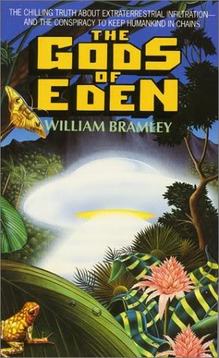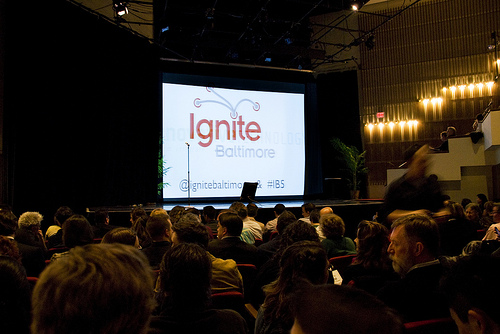In The Gods of Eden, William Bramley argues that the vast majority of strife and struggle in human history is the result of the workings of the "Brotherhood", the secret society behind the Order of Assassins, Freemasonry, and many of the world's religions. This Brotherhood is itself a pawn of the true rulers of Earth, a group of extraterrestrials which have been reported inaccurately throughout history as gods, angels, or demons. Bramley calls these false deities Custodians.
Let's start with my negative issues with Bramley's admittedly impressive work. First, there are some factual errors that could probably simply be fixed with some simple editing. I'm not a historian by any means but I do know that the Ursa constellations are not the Big and Little Dipper (ch. 9) and that Socrates was not publishing much new work in the 5th century A.D. (ch. 14). It's little hiccups like these that can hurt an author's authority.
Furthermore, Bramley relies heavily upon especially ancient texts for much of his defense of Custodian interference on Earth. My issue with using evidence from archaic sources is that many times these texts are incomplete, without context, and highly vague. Bramley turns, like many "Ancient Aliens" scholars, to the work of author Zecharia Sitchin, known as much for his interesting ideas as for his dubious scholarship. The farther back in history one turns (Sumeria being the zenith of the unknowable past), the easier it is to interpret things in whatever particular light one wants. Bramley's instances of direct Custodian contact become less and less abundant as he moves from ancient to modern history (the major exceptions being Joseph Smith's claimed experiences and UFO abductees).
Finally, Bramley veers a bit too spiritual at times for my taste, although I will say that he is at least clear on his stance and makes sure to distance himself from "pop" New-Agers and their "space brothers".
The Gods of Eden, despite some flaws, is a powerful and impressive book, absolutely packed with historical examples of Machiavellian manipulations by secret societies. Bramley's scholarship in this area is spot on, and indeed his historical evidence is so thorough that the midsection of the book is slow-going for anyone not extremely interested in the minute details of the Brotherhood's deep roots. But the author rewards the patient reader with a scathing indictment of the inflatable currency banking system, and the role those institutions played throughout the deeply conflicting centuries leading to the present financial crisis, which is very intriguing to think about in light of Bramley's assertions about who set up some of the systems of power in our world.
Let's start with my negative issues with Bramley's admittedly impressive work. First, there are some factual errors that could probably simply be fixed with some simple editing. I'm not a historian by any means but I do know that the Ursa constellations are not the Big and Little Dipper (ch. 9) and that Socrates was not publishing much new work in the 5th century A.D. (ch. 14). It's little hiccups like these that can hurt an author's authority.
Furthermore, Bramley relies heavily upon especially ancient texts for much of his defense of Custodian interference on Earth. My issue with using evidence from archaic sources is that many times these texts are incomplete, without context, and highly vague. Bramley turns, like many "Ancient Aliens" scholars, to the work of author Zecharia Sitchin, known as much for his interesting ideas as for his dubious scholarship. The farther back in history one turns (Sumeria being the zenith of the unknowable past), the easier it is to interpret things in whatever particular light one wants. Bramley's instances of direct Custodian contact become less and less abundant as he moves from ancient to modern history (the major exceptions being Joseph Smith's claimed experiences and UFO abductees).
Finally, Bramley veers a bit too spiritual at times for my taste, although I will say that he is at least clear on his stance and makes sure to distance himself from "pop" New-Agers and their "space brothers".
The Gods of Eden, despite some flaws, is a powerful and impressive book, absolutely packed with historical examples of Machiavellian manipulations by secret societies. Bramley's scholarship in this area is spot on, and indeed his historical evidence is so thorough that the midsection of the book is slow-going for anyone not extremely interested in the minute details of the Brotherhood's deep roots. But the author rewards the patient reader with a scathing indictment of the inflatable currency banking system, and the role those institutions played throughout the deeply conflicting centuries leading to the present financial crisis, which is very intriguing to think about in light of Bramley's assertions about who set up some of the systems of power in our world.
Human beings appear to be a slave race languishing on an isolated planet in a small galaxy... To keep control over its possession and to maintain Earth as something of a prison, that other civilization has bred never-ending conflict between human beings, has promoted human spiritual decay, and has erected conditions of unremitting physical hardship. - Bramley, p.34
Bramley's prose is hard-hitting and highly readable. He has been careful to cite all of his sources with extensive endnotes for further research. The Gods of Eden is both scholarly and thought-provoking, and essential for someone wanting to learn about the history of secret societies and their extraterrestrial connections.


 RSS Feed
RSS Feed